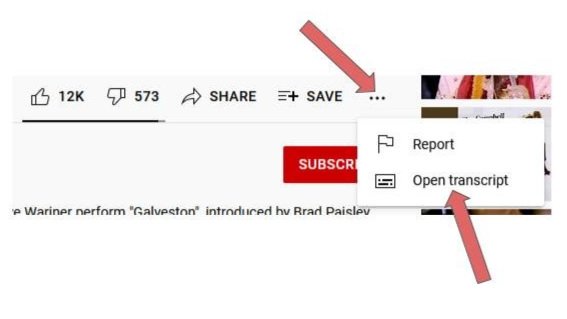Star Power! Using Talent Search Shows to Improve Language Proficiency
Develop interpretive reading and listening, vocabulary, and presentational speaking activities with one fantastic resource!
I love using talent search shows in my upper level classes! A lot of kids watch shows like American Idol and America’s Got Talent, and they are excited to learn these shows exist in the target language.
“Often, the judges’ comments are the best part of the show! Taking time to understand this commentary can build students’ conversational vocabulary and listening skills.”
French examples include “La Voix” (French Canadian), “The Voice: La Plus Belle Voix (France). Spanish teachers could use “La Voz” (Spain or Mexico), “Va Por Ti” (USA - Univision), and “Yo Soy el Artista” (USA - Telemundo). This is just a sample; a target language internet search for “Talent Shows in (country)” will reveal the latest and most popular talent shows in your target language.
Video clips from these programs are a fantastic platform for listening practice, reading, speaking, grammar, and vocabulary development. I love using talent competitions so much, I devote a full unit to discussing music in my upper level classes.
Here are my three favorite talent-competition-related activities.
Activity 1: Use Judges’ Comments to teach interpretive reading and interpretive listening
Often, the judges’ comments are the best part of the show! Taking time to understand this commentary can build students’ conversational vocabulary and listening skills.
1. Give students a transcript of judges’ comments, cut into strips. You can give students the entire transcript, or only selected comments.
2. Have students work in groups to read and understand the comments. They could rank the comments from most to least positive, or identify vocabulary words that are positive / negative.
3. After working to build comprehension, listen to the video & have students sequence the comments and/or match them to the correct judge.
This activity is easy to differentiate. You can give students different sets of comments, depending on their proficiency. Or, as a group finishes their prep work, you can give them a few more sentence strips to work through. You can also ask students to identify specific vocabulary or language structures within the text.
Here’s an example activity in French (with English translations of the judges’ comments)
Selected Comments from the video:
Ça m’a envoyé des décharges (That gave me chills)
Beaucoup, beaucoup de personnalité, mais d’humilité dans ta manière de chanter (A lot, a lot of personality , but humility, in your way of singing)
J’ai vraiment été super-touché, et j’adore. (I was really super-touched and I love it)
Viens dans mon équipe. (Join my team.)
Je suis complètement d’accord (I agree completely)
Ton choix était déjà fait avant de venir (Your choice was already made before you came)
Tu es une personne qui SAIS ce que tu veux, (You are a person who KNOWS what you want)
Je m’en fiche ! (I don’t care!)
Vas-y, vas-y FORT ! (Go for it, totally go for it!)
As you can see these comments include casual language, slang, strong opinions, and emotive expressions; this is the kind of language students want to know, and thus students find this exercise highly motivating.
Once students have examined the sentence strips and we have clarified their meaning, we watch the video. Matching the quotes to the speaker in the video is a measurable task that requires real comprehension, making this an outstanding listening exercise.
Slimane’s blind audition on “The Voice - France”. Judges commentary begins after the song around timestamp 2:30
Watching this video two or three times gives students the opportunity to accomplish the matching task and check their accuracy. In the process, students’ listening comprehension will improve.
Click the 3 dots to open a transcript on many YouTube videos!
Incidentally, many YouTube videos include a transcript (which makes this exercise much easier to develop!) Find it by clicking on the three dots next to the ‘save’ button, then ‘more’ and then ‘open transcript’.
For French teachers, click here for a ready-to-chop-apart transcript of judges’ comments for Slimane’s 2016 audition on “The Voice France”. I hope your students enjoy it!
Activity 2: Practice Interpersonal Speaking by regularly debating and justifying opinions
Students have strong opinions on songs and musicians, which makes for great classroom discussions. Ask students to share their opinions on popular and /or controversial musical genres and musicians. Some examples that elicit emotional responses include:
Genres: Country Music / Rap Music / Classical Music / Hip Hop / Jazz / Bluegrass/ Techno
American Artists: Beyoncé / Lady Gaga / Post Malone / Freddy Mercury / Miley Cyrus / Drake / Michael Jackson / Eminem / ask students to contribute to this list!
Target Language Artists: fill in the list of songs and artists you have listened to in class!
As a twist on this activity, you can give students two musicians and ask them to discuss which is better (and why). This is good for practicing comparisons and developing more detailed vocabulary.
“Soliciting student input creates agency, encourages better speaking participation, and helps expand my vocabulary as well!”
Finally, have students find target language examples of talent search performances, both good and bad. (Kids will spend quite a bit of time listening to find clips they are excited about showing their peers!) Watch the clips and debate opinions in small group or full class discussion.
At the beginning of this unit, students will struggle to express their viewpoints with detail and specificity, and this opens the opportunity to introduce and practice some great vocabulary. Here are some phrases my students have found useful in describing music:
Comparative phrases: more ___ than / less ___ than / as ___ as / even more ____ than / the most / the least / the best / the worst / they are both ___ / neither one is ___ / etc.
Opinion starters: In my opinion / I think / I agree / I disagree / I don’t care about…/ It doesn’t matter to me / etc.
Slang or Current phrases for opinions: that’s lame / it bugs me / that’s awesome / he’s a loser / etc.
Music-related adjectives: overrated / repetitive / a dud / catchy / outdated / popular / controversial / cheesy / elevator music / trendy
Here’s the French vocabulary list I use with my students - feel free to borrow it!
You can also invite students to help develop the class vocabulary list; what words do they need to describe their opinions? Soliciting student input creates agency, encourages better speaking participation, and helps expand my vocabulary as well! I learned the words ‘overrated’ ‘cheesy’ and ‘elevator music’ in French due to students’ requests for these words!
Activity 3: Practice the Subjunctive and Presentational Speaking by Role Playing a Judges Panel
Working in small groups, have students select a talent show audition to show the class (a good listening exercise on its own). Then write a skit in which each group member gives the performer advice using phrases such as “It’s necessary for you to (subjunctive)”, “I want you to (subjunctive)”, etc. Kids will enjoy role playing judges who are mean, critical, or very technical, and they can write disagreements and playful banter into their skits.
The “talent show” unit is one of my students’ favorites, as it provides so many opportunities to learn and practice contemporary language. The unit is valuable for my own language skills as an instructor too; watching this constantly changing content forces me to stay current with my own language skills and knowledge of French societal trends.
Have you used talent search shows in your world language classroom? Comment with your experience!



